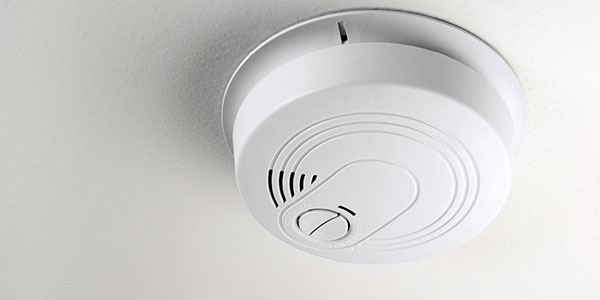A home fire, wildfire or carbon monoxide buildup can turn deadly with little warning. Reduce the risk of severe injuries and property damage by preparing your house and family members now. Dale White, emergency preparedness manager for Sutter Care at Home, offers these safety tips.
Prepare Your Home
Home fires kill 2,500 U.S. people and injure 12,600 more each year. With proper precautions, you can prevent most fires and possibly save your life.
Install Fire and Carbon Monoxide Alarms
Working smoke alarms greatly increase your chances of surviving a fire. Place smoke alarms:
- On every level of your home, including the basement
- In every bedroom
- Outside sleeping areas
Install both types of detectors—ionization and photoelectric (or dual-sensor alarms)—to detect flames and smoldering fires. Dead batteries cause many smoke alarm failures, so replace the batteries every year (associate it with turning back your clocks for Daylight Savings), or install hard-wired alarms. Test smoke alarms monthly.

In addition, install a carbon monoxide detector on each level of your home. Carbon monoxide, an odorless, toxic gas that can cause memory loss, brain damage and death, is produced by cars, fireplaces, furnaces, grills and appliances that burn gas, oil, wood, propane or other fuels. The Centers for Disease Control and Prevention offers more information on preventing carbon monoxide poisoning.
If someone in your household is deaf or hard of hearing, contact your local fire department for information about flashing or vibrating alarms.
Make and Practice an Escape Plan
If a fire starts, you could have just two minutes to get out safely, so it’s critical to be prepared. “It’s not a plan until you practice it,” White says. “If you practice regularly, your family will feel safer and more secure, and so will you.”
- Make sure every family member knows two ways to get out of each room. Consider collapsible ladders for upper story windows.
- Practice opening windows and doors that have security bars, which by law must release quickly.
- Teach children never to hide during a fire or from firefighters.
- Designate a safe spot for everyone to meet after they leave the home, such as in front of a neighbor’s house.
- Hold a family fire drill. Practice crawling along the floor to avoid smoke and feeling your way out in the dark or with your eyes closed.
Keep Fires from Starting
- Stay in the kitchen when cooking food at high temperatures, such as frying or broiling.
- If you smoke, do so outside, and be sure to fully extinguish cigarettes.
- Replace any frayed or damaged electrical cords, and do not run them under rugs or furniture.
- Place space heaters at least 3 feet away from furniture, curtains or other combustible objects.
- Use fireplace screens that cover the entire opening to catch sparks. Be sure the fire is completely out before going to bed or leaving the house.
- Keep a fire extinguisher readily available on each level of your home. Use them to put out or contain small fires, but be prepared to escape if the fire grows or the room fills with smoke.
For more on preventing and preparing for home fires, see Ready.gov or Listo.gov (Spanish).
Mitigate Wildfire Hazards
If you live in an area susceptible to wildfires, one of the most important steps is to create a fire-safe buffer zone around your home, White says. Reducing nearby combustible materials will give firefighters a better chance to keep flames at bay. To create a defensible space:
- Clear trees, bushes and dead plants away from your home.
- Keep rain gutters clean.
- Don’t store piles of wood and other flammable items next to your house.
Be Ready to Evacuate
Pay attention to the news to learn about current fire conditions and evacuation orders. If you must evacuate, take only essential items with you.
“There is no item in your home worth risking your or your family’s life for,” White says. “If you are told to evacuate, do not delay.”
White also suggests keeping your vehicle’s fuel tank at least half full in case gas stations are closed or have long lines in an emergency. Get more tips on making your car part of your disaster planning in “How to Prepare for Disasters” (Link to wellness article: How to Prepare for Disasters, in Safety).
Reduce Smoke Danger
Smoke from nearby wildfires can pose a health risk, especially for the elderly, children, or people with asthma, heart disease or lung disease.
If alerts advise you to stay indoors, keep your windows and doors shut. Run an air conditioner if you have one, but close the air intake and clean the filter frequently. If you don’t have an air conditioner and it is too hot to stay inside, seek shelter in an evacuation center or outside the area. Paper dust masks sold at hardware stores will not protect you from the small particles in wildfire smoke.
More Resources
Healthwise Resource Library
Look up helpful health information.
Patient Information
Practical info for Sutter patients.
Tools and Quizzes
Online tools to help you make decisions about your health.










